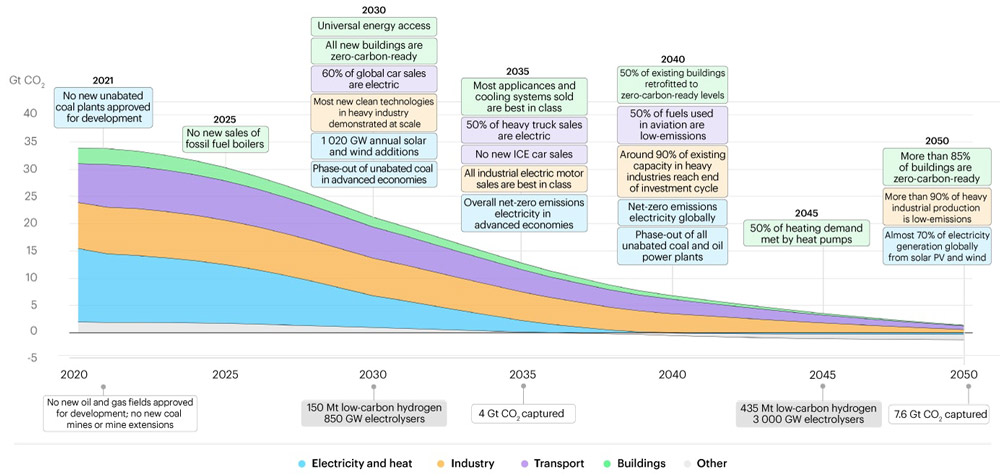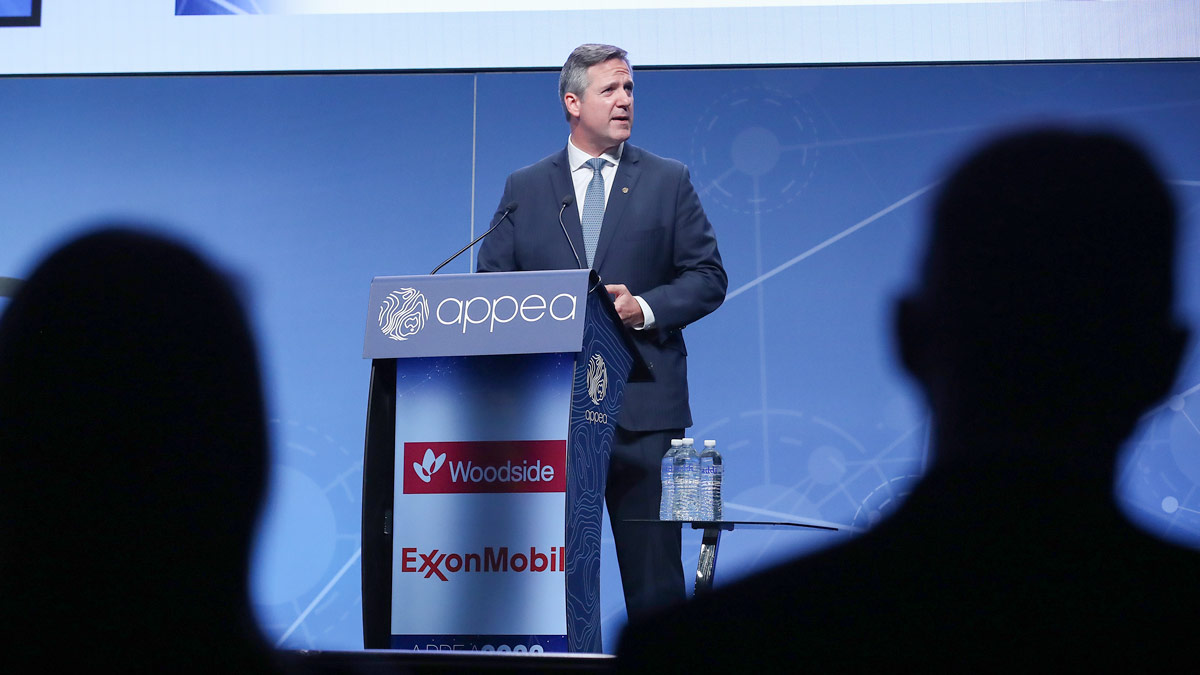Unphased by the growing urgency for a rapid decarbonisation of the global energy system and the existential risk posed by climate change, Australia’s largest fossil fuel companies believe they have a duty to supply the world with more oil and gas.
Australia’s fossil fuel industry is gathering in Brisbane this week for the latest conference hosted by industry lobbyist, the Australian Petroleum Production and Exploration Association (APPEA).
The speeches – coming as new climate research points to a “tipping point” in rising temperatures (see below) – made it clear that it is not as though the fossil fuel industry fails to understand the threat posed by climate change, it just don’t care.
“Decarbonisation, not defossilisation” is the bizarre new catchcry.
The confidence amongst conference delegates – at least those leading some of the world’s largest oil and gas companies – that the industry will continue to grow is on clear display.
It highlights just how little concern the industry has about the impacts of climate change, the urgent need to decarbonise our energy system and their conviction that they can continue to strong-arm governments into adopting weak climate policies.
APPEA chairman Ian Davies opened the conference by advocating for an expansion of Australia’s oil and gas industries, saying recent global conflict created an opportunity to make the case for new projects.
“The focus of our opponents on stopping fossil fuel projects has had no effect on consumer demand, and no effect on emissions reduction,” Davies said.
“Almost 80 per cent of the world’s primary energy still comes from oil, gas and coal – the same as 45 years ago and under the IEA’s Net Zero scenario, the world would still be using oil and gas in 2050.”
“So if we’re serious about decarbonisation, we have to focus on reducing emissions from their production and use.”
“We have abundant gas resources – onshore and offshore. But a key question is: will we be smart enough to unlock their wealth in support of our own domestic industries, and to generate export income for the nation?” Davies added.
Santos CEO Kevin Gallagher said the oil and gas giant was looking to carbon capture and storage technologies to provide a lifeline to fossil fuel industries, despite growing calls for an accelerated shift to renewable energy sources.
“What is abundantly clear is that we must maintain the momentum of the energy transition without compromising energy security – and that includes affordability, as we strive for universal access to reliable energy,” Gallagher said to the conference.
“We can only do this through decarbonisation, not defossilisation.”
“The world will still be using oil and gas in 2050 – according to the International Energy Agency’s most ambitious scenario – Net Zero by 2050.”
But what neither Davies nor Gallagher addressed when invoking the IEA’s net zero scenario is the inconvenient truth for the fossil gas industry that the scenario calls for an immediate stop to the development of new oil and gas projects.
The IEA’s scenario also calls for a massive ramp-up of renewable energy supplies to reduce the use of fossil fuels across all sectors of the economy.
It’s not a vision compatible with an expansion of the fossil fuel industry but rather outlines a clear need for the global energy system to move away from fossil fuels as fast as possible.

Gallagher said Santos saw the future of its business as one supported by carbon capture and storage technologies and pointed to Chevron’s Gorgon CCS project as an example of the “successful” achievements of the technology.
“The biggest project in the world is right here in Australia at Gorgon’s LNG project in WA,” Gallagher said.
“It has successfully stored 6 million tonnes of CO2 since it started up in 2019.”
“These exciting technologies have the potential to negate emissions elsewhere in the economy, especially in hard-to-abate sectors that Australia still needs.”
But even these statements are at odds with the real-world performance of the Gorgon CCS project.
By its own admission, the Chevron CCS project has significantly underperformed. The was supposed to begin storing carbon emissions from the Gorgon LNG project in 2016, but technical issues kept the project offline until 2019.
Once the project was operational, it has been plagued by design problems that have forced the CCS project will run well below its expected capacity – storing around half the emissions it had promised – costing Chevron $40 million in make-good measures.
The statements being made by the senior executives at the oil and gas conference show the fossil fuel industry remains significantly out of step with the science of climate change.
This week, new research published in the prestigious academic journal The Lancet estimated that as many as nine million deaths in 2019 were attributable to air pollution.
While greenhouse gas emissions from fossil fuel use present a serious long term risk of disruption to global climate systems, other pollutants caused by the consumption of fossil fuels create a present and significant public health threat, the research shows.
Research co-author, professor Philip Landrigan who serves as director of the Global Public Health Program at Boston College, said the research demonstrated the need to accelerate the shift away from fossil fuels.
“Pollution is still the largest existential threat to human and planetary health and jeopardises the sustainability of modern societies,” Landrigan said.
“Preventing pollution can also slow climate change – achieving a double benefit for planetary health – and our report calls for a massive, rapid transition away from all fossil fuels to clean, renewable energy.
On Tuesday, the National Centre for Climate Restoration, the think tank also known as Breakthrough, released research warning that current levels of global warming – around 1.2 degrees – could trigger climate’ tipping points’ that could contribute to more extreme weather events.
“This is a code red situation. No government is taking it seriously enough,” author of the foreward to the Breakthrough report, former UK Climate Envoy progressor Sir David King said.
“[It] is a sober call for all countries to follow a critical analysis pathway for dealing with climate change as the emergency that it is. Precautionary action is needed now to avoid, to the extent possible, further tipping points being triggered.”










